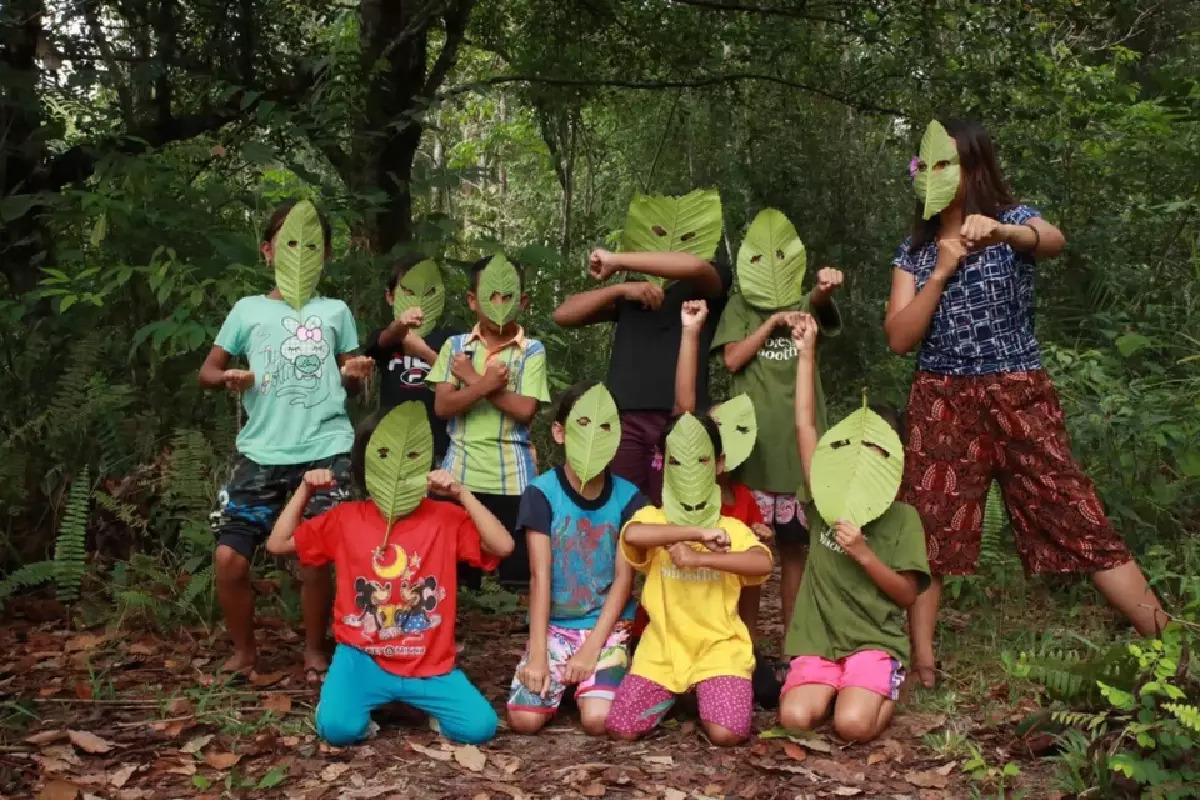A tale of two youths and their journey in preserving the Dayak legacy
KALIMANTAN, INDONESIA (ANN/THE NATION) – Amidst the lush jungles of East Borneo, stands as a symbol of optimism for indigenous communities grappling with the threat of disappearing forests.
Introducing the Sakolah Adat Arus Kualan (Arus Kualan Traditional School), where the natural world assumes the role of a revered mentor and the quest for knowledge seamlessly merges with the preservation of the Dayak heritage— one of Indonesia’s oldest indigenous communities.
As these communities grapple with the threat of losing their forests and the traditional wisdom passed down through generations, Arus Kualan emerges as a transformative force, empowering individuals like Selsi and Elis, aged 12 and 14, to become champions of their cultural heritage.
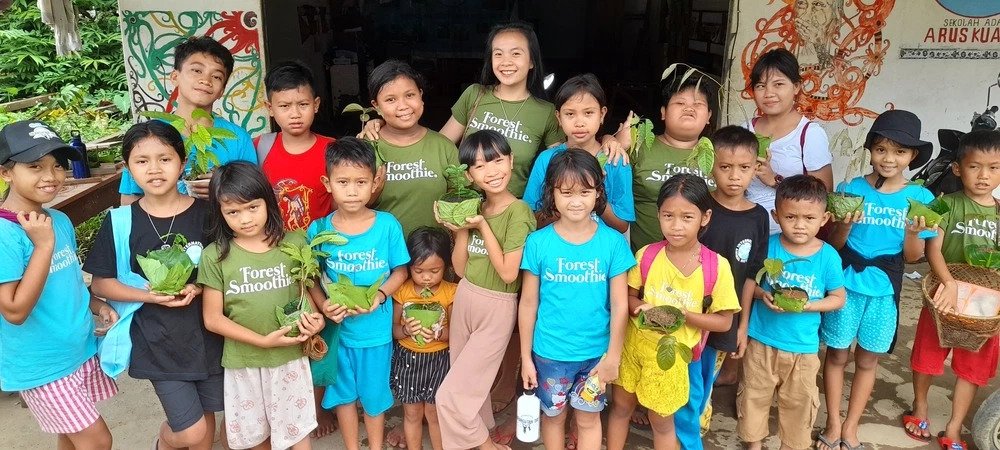
Their journey epitomises the dynamic impact of education in shaping inclusive and sustainable communities, promising a brighter future for Borneo’s rich traditions and environment.
Selsi, the 12-year-old prodigy, has found her passion in teaching the art of playing Sampe, a revered traditional instrument. Beyond music, she also imparts her knowledge of ancient games and the intricate art of traditional weaving, fostering a sense of unity among her peers.
Selsi shares her enthusiasm, saying, “Arus Kualan has given me the opportunity to not only learn about my culture but also to inspire others to embrace our traditions. It fills my heart with joy to see my peers learning and preserving our heritage.”
Meanwhile, Elis, with deep ancestral ties, carries the weight of preserving the knowledge of traditional medicines. Inspired by her wise grandmother, who is also a member of the indigenous Dayak community, Elis passionately embraces the role of a healer.
Moreover, her fluency in English transforms her into a cultural ambassador, warmly welcoming foreign visitors and guiding them through the wonders of Arus Kualan.
Elis shares her vision, stating, “I want to bridge the gap between our cultural heritage and the world. By sharing our knowledge of traditional medicine and arts, we can create a deeper appreciation for our identity.”
Founded in 2014, the Arus Kualan traditional school branches stretch far and wide across East Kalimantan as a beacon of cultural preservation, creating a diverse community of learners eager to preserve their Dayak heritage.
Rooted in the belief that local wisdom is the key to sustaining cultural legacy, this non-formal education institution imparts the art of traditional dances, music, and handicrafts to its enthusiastic students. Founded on the philosophy that “Nature is a school, and everyone is a teacher”, Arus Kualan embraces learners of all ages.
Over the past decade, Arus Kualan has witnessed a growing interest in its mission, with approximately 350 students recorded from 2014 to 2023.At present, around 168 students actively participate in the school’s transformative programs.
According to Founder of Arus Kualan, Plorentina Dessy, “Our school believes in the transformative power of education and that everyone, regardless of age, can be both a student and a teacher.”
Safeguarding heritage through environmental advocacy
For generations, the Dayak people have cherished their lands, viewing every tree, river, and creature as part of their identity. Arus Kualan imparts this sacred knowledge, instilling love and respect for nature in its students.
The loss of forests in Borneo threatens indigenous communities’ traditional knowledge and way of life. Relying heavily on forests for sustenance and resources, diminishing forests endanger their well-being and cultural ties.
Urgent conservation efforts and sustainable practices are crucial to preserve Borneo’s forests and safeguard their heritage for future generations.
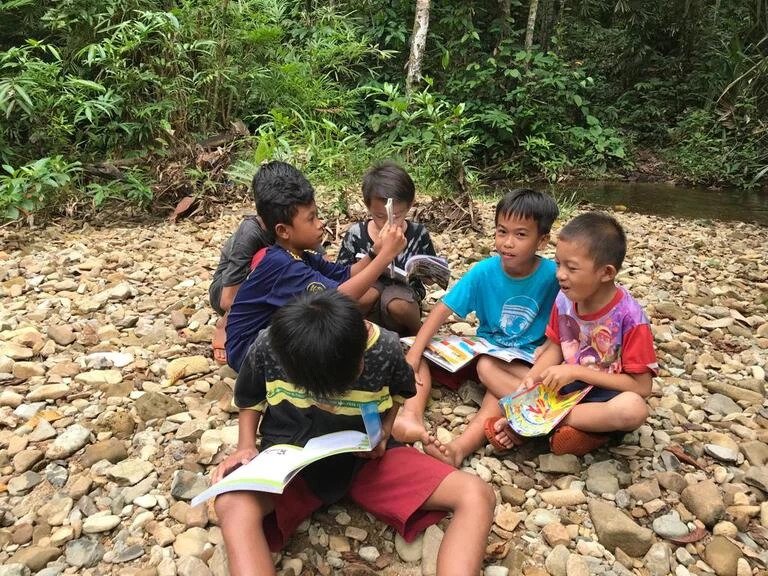
Amid deforestation and climate change challenges, Arus Kualan’s focus on environmental stewardship becomes vital. Integrating conservation teachings into its curriculum, the school equips students with resilience and cultural values.
Immersing students in nature through jungle treks and wildlife observations fosters profound appreciation for the interconnectedness of all living beings.
Selsi and Elis embrace Arus Kualan’s teachings, understanding the importance of protecting their forests for traditional medicine and community well-being.
Arus Kualan empowers them to safeguard their cultural heritage and the environment for a sustainable future. Together, they work to preserve the intricate tapestry of their cultural heritage and the diversity of Borneo’s ecosystem.
Elis also added, “I believe that we hold the key to safeguarding our cultural heritage and the environment. Through hands-on experiences with nature’s wonders, we can foster a profound appreciation for our traditions and the interconnectedness of all living beings.”
Literacy movement: empowering through education
Recognising that literacy is the gateway to knowledge and empowerment, Arus Kualan places immense emphasis on building strong reading and writing skills among its students. The foundation believes that literacy is a cornerstone of personal growth, enabling individuals to articulate their thoughts and aspirations effectively.
With a keen understanding of the transformative power of literacy, Arus Kualan endeavours to equip its students with the tools to become confident communicators and critical thinkers.
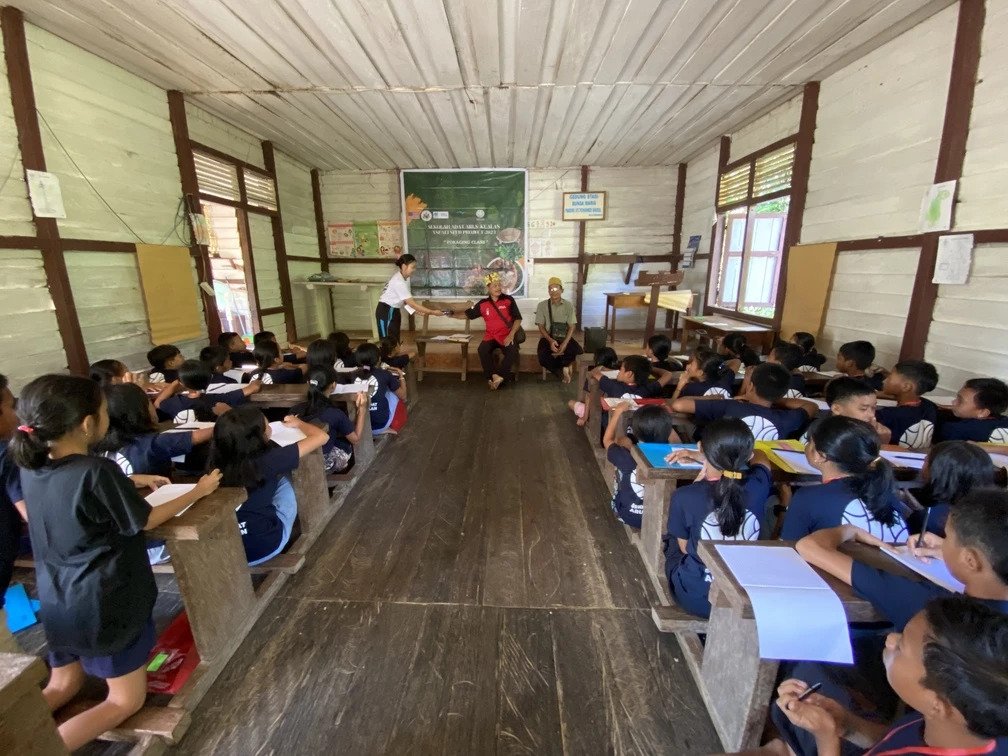
To this end, literacy classes are held for children to learn to read, write, and even foreign languages and computers. These classes are designed to ignite curiosity and expand the students’ horizons, enabling them to connect with the world beyond their immediate surroundings.
Through literacy, Arus Kualan aims to empower its students to become active participants in a globalized society, where communication and understanding of diverse perspectives are key.
Shaping a brighter future
The Arus Kualan Foundation continues to be the driving force behind this transformative education, shaping a brighter future for both individuals and their cultural heritage.
With a commitment to empowering young minds, the foundation nurtures dreams and aspirations, just as it did for Selsi and Elis.
Plorentina Dessy expresses her pride, stating, “Seeing Selsi and Elis embrace their roles as teachers and ambassadors fills us with hope for the future. They represent the heart and soul of Arus Kualan’s mission.”
These two students, now also proud teachers, are the catalysts of their culture, they inspire hope and dedication in the next generation, passing down the wisdom they have gained at the school.
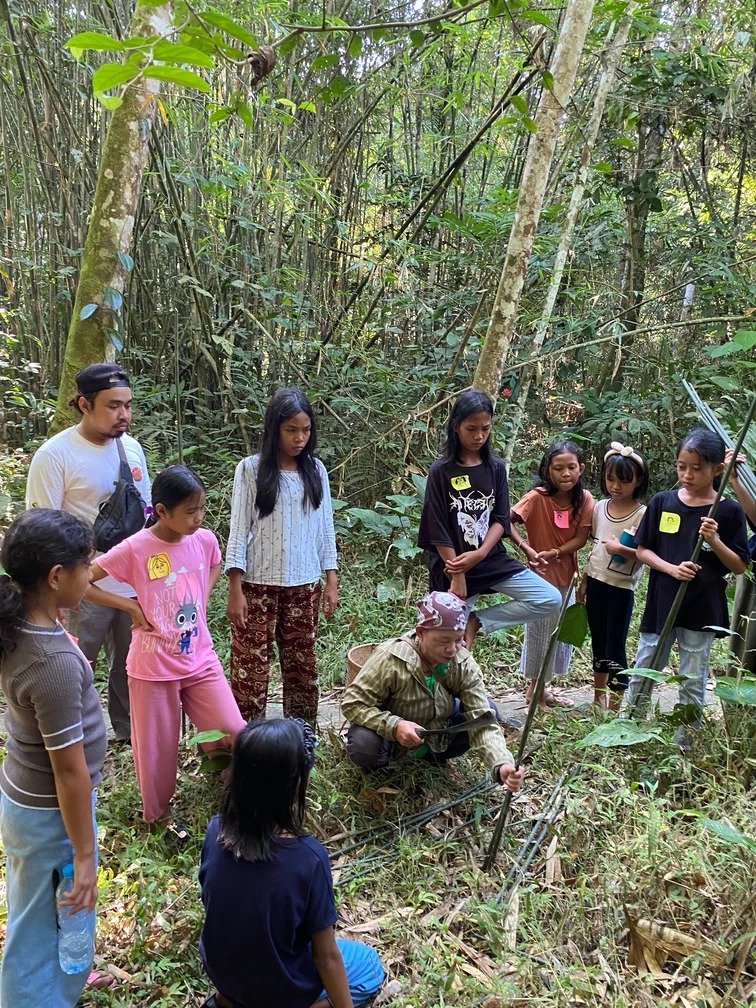
In the embrace of Arus Kualan, the Dayak community has found the key to preserving its heritage while embracing a sustainable future. Selsi and Elis embody the spirit of this transformative institution, illuminating the path for a brighter tomorrow.
As Elis once said, “In the embrace of Arus Kualan, I found my roots, my purpose. Now, as a teacher, I am determined to keep our heritage alive for generations to come.”
With such dedicated individuals, the heart of Dayak culture will continue to beat strong, nourished by the wisdom of Arus Kualan
Plorentina Dessy also hopes that Arus Kualan can serve as a model for indigenous communities in other countries, especially in the Southeast Asian region, where reckless modernisation poses a significant threat to the survival and cultural identity of native communities.
Dessy also envisions that once successfully adopted by indigenous communities in other nations, programs similar to her school can receive protection and support from local governments.
For example, Thailand’s deforestation issue has prompted the government to devise a master plan aimed at suppressing and arresting forest invaders.
The government is also taking proactive steps by drafting five laws with the aim of safeguarding the rights and heritage of indigenous groups submitted to Parliament in 2022.
“As we strive to preserve our cultural heritage and empower indigenous communities, Arus Kualan stands as a beacon of hope. My hope is that our model can inspire and protect native cultures in Southeast Asia and beyond, navigating the challenges of modernization while cherishing our identity and traditions.” closed Dessy.
